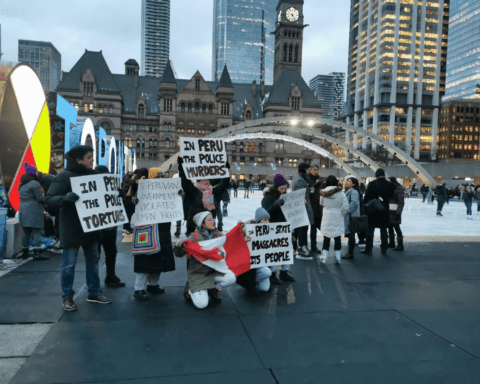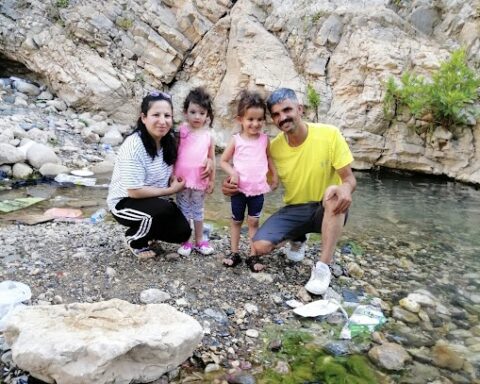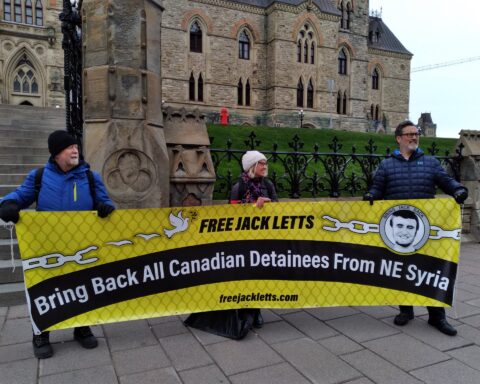Is the Arab Spring coming to a neighbourhood near you? That is the question on the minds of many Arab and Canadian citizens these days.
Absent from the conversation that began in December, 2010, is the potential effect of this tumultuous and historic upheaval on the Arab diaspora, specifically in Canada.
Forget the familiar news from Tunisia, Egypt, Libya, Yemen and Syria, where the whirlwind of history is bewildering and where change is erratic and unpredictable – to say the least. What about the Arab communities that are already here – estimated to be about 350,000 people – and to whom Canada is now their country and future? What does the Arab awakening mean to them, and how is it going to affect them in the long term as they try to consolidate, strengthen and diversify their presence in society?
Canadians are bound to review and reassess their assumptions and attitudes toward the Arab community at large and their neighbours from Arabic-speaking countries, regardless of the heterogeneous nature of that community. The continuous onslaught of media coverage of events in the Arab world is proof that the yearning for liberty and the desire for democratic values and dignity are common to both Canadians and Arabs.
The average Arab citizen in Canada needs to translate that awakening spirit of the Arab Spring – notwithstanding the forward and then backward road it is taking – into a more political, social, moral and economic capital in Canadian mainstream life. We all know that the Arabs in this country were for a long time marginalized, invisible and politically weak and unrecognized. It is time to stand up and be counted.
In fact, there are some hopeful indications and examples of a re-energized Arab presence in Canada. The University of Ottawa, for example, has launched a new study stream called The Arab Canadian Studies Research Group recently held its first symposium on the Arab Spring phenomenon, Arab culture and the contributions and achievements of Canadian-Arab artists, academics and writers, such as Rawi Hage.
Also it is a fact that when the wall of fear was collapsing in Arab lands it also cracked in Canada, where demonstrations in various cities were held in support of the revolts. I hear stories daily of the newfound respect many Canadians have for the Arab people, who are dying and sacrificing so much for freedom and dignity in their homelands. There are also evidence that Arab student associations in many Canadian universities are becoming more assertive, visible and action-oriented than ever before, citing the Arab Spring as an inspiration for action.
During the research for My Arab Spring My Canada, most of the professionals surveyed were positive regarding the potential impact of the Arab Spring on Canadians of Arab origin. Prof. John Sigler, a retired specialist on the Middle East at Carleton University, is optimistic about the existence of a great potential for positive change in Canada’s perceptions of the Arabs, given the inherent greatness of their cultural tradition and the creative side of historic Islam. Prof. Yasmeen Abu-Laban, a political scientist at the University of Alberta, suggests that second-generation minorities, including Arabs, are politically active, which highlights the potential for change since the engine of the revolts in many Arab countries are the young — the generation of Twitter, Facebook and Google.
Are we heading toward a new paradigm, a new phase of shedding that prejudicial state of mind that saw Arabs as anti-democratic, anti-modernity, and anti-assimilation to the mainstream Canadian culture? I will dare to be daring and imagine that its coming, given the Arab Spring promise.
In the wider Arab lands, the burden of history is heavy and taxing. The lack of a solid tradition in democratic politics, liberty and civic institutions are all impediments to a fast and easy transition from tyranny to political freedom.
In Canada as well, the Arab communities must adjust, learn and discover a way to reinvent themselves to be full players on the Canadian scene. The future is indeed ripe with promise and potential for progress.
(Elie Mikhael Nasrallah is an Ottawa-based immigration consultant and co-author with Qais Ghanem of My Arab Spring My Canada published by Createspace.)




